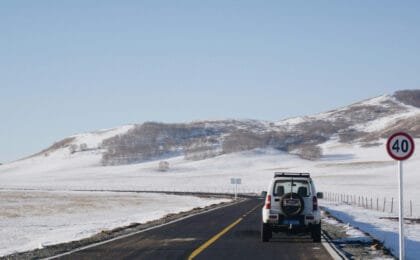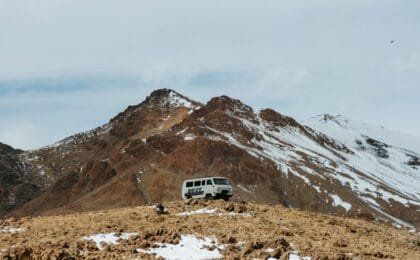Top 10 Mongolia FAQs: Everything You Need to Know
Planning a trip to Mongolia? This enchanting country, known for its vast steppes, nomadic culture, and awe-inspiring landscapes, offers endless places to explore. From ancient monasteries to the stunning Gobi Desert, Mongolia is a treasure trove of experiences. Here are the top 10 Mongolia FAQs that every traveler has when going to Mongolia!
Table of Contents
- Do I need a visa to visit Mongolia?
- What’s the best time of year to visit Mongolia?
- 3. How do I get to Mongolia?
- What kind of transportation is available in Mongolia?
- Is it safe to travel in Mongolia?
- What should I pack for a trip to Mongolia?
- What currency is used in Mongolia, and can I use credit cards?
- Is it easy to find vegetarian or vegan food in Mongolia?
- How do I stay connected to the internet in Mongolia?
- Can I use English in Mongolia?
- Final Thoughts: Mongolia FAQs for Travelers
TOP 10 MONGOLIA FAQS FOR TRAVELERS
1. Do I need a visa to visit Mongolia?

Most visitors will need a visa to enter Mongolia, but some countries have visa-free arrangements. For example, citizens from countries like the U.S., Japan, and Germany can stay for up to 30 days without a visa. You can check the visa requirements for your country and apply through the nearest Mongolian embassy or consulate.
Tip: If you’re planning a longer stay, consider applying for an extension or a multiple-entry visa in advance.
2. What’s the best time of year to visit Mongolia?

The best time to visit Mongolia is from late May to early September, when the weather is warm and most festivals, like Naadam, take place. The summer months offer pleasant temperatures, while spring and autumn provide cooler, comfortable weather for sightseeing and outdoor activities.
Tip: Winter is extremely cold, but it can be a unique experience for those interested in ice festivals or seeing the snow-covered landscapes.
3. How do I get to Mongolia?
Most international visitors arrive in Mongolia via Chinggis Khaan International Airport in Ulaanbaatar, with direct flights from major cities like Beijing, Seoul, and Moscow. You can also enter by train on the famous Trans-Siberian Railway from Russia or China.
Tip: If flying, book your tickets early, especially during peak travel seasons like summer or the Naadam Festival.
4. What kind of transportation is available in Mongolia?
In Ulaanbaatar, buses, taxis, and ride-hailing apps like UBCab are available. Outside the city, transportation options include buses, trains, domestic flights, and organized tours with drivers.
For exploring remote areas like the Gobi Desert or the Altai Mountains, hiring a guide with a 4×4 vehicle is recommended.
Tip: For independent travelers, renting a car with a driver or joining group tours are the best ways to explore Mongolia’s rugged countryside.
5. Is it safe to travel in Mongolia?
Mongolia is generally a safe country for travelers. Ulaanbaatar, like any large city, has petty crime such as pickpocketing, so it’s important to stay aware of your surroundings. Outside the city, Mongolia is very safe, and nomadic hospitality is well-known.
Tip: When traveling in remote areas, always inform someone of your route and travel plans in case of emergencies.
6. What should I pack for a trip to Mongolia?

Mongolia’s climate can be unpredictable, so it’s essential to pack layers. A good packing list includes:
- Warm clothing for cooler nights (even in summer)
- Comfortable hiking boots
- Sunscreen and sunglasses (for strong UV rays)
- Travel insurance
- Power bank for electronics (electricity can be limited in rural areas)
Tip: Don’t forget a reusable water bottle, as you’ll need to stay hydrated, especially if you plan to trek or explore deserts and mountains.
7. What currency is used in Mongolia, and can I use credit cards?
The currency in Mongolia is the Mongolian Tugrik (MNT). In Ulaanbaatar, many hotels, restaurants, and shops accept credit cards, but outside the city, cash is king. ATMs are available in larger towns, but it’s best to carry enough cash when visiting rural areas.
Tip: Exchange some currency before heading to remote areas where ATMs may be scarce.
8. Is it easy to find vegetarian or vegan food in Mongolia?
Mongolia is traditionally a meat-heavy country, with dishes often featuring mutton or beef. However, in Ulaanbaatar, vegetarian and vegan options are becoming more common, especially in international restaurants. Outside the capital, finding vegetarian food can be challenging, so it’s best to inform your hosts or bring snacks and supplements.
Tip: Visit places like Luna Blanca in Ulaanbaatar for excellent vegetarian meals!
9. How do I stay connected to the internet in Mongolia?

Wi-Fi is widely available in hotels, restaurants, and cafes in Ulaanbaatar. For staying connected while traveling, buying a local SIM card with data is a good option. Mobile networks like Mobicom, Unitel, and G-Mobile offer reliable coverage in most areas, though service can be limited in remote regions.
Tip: SIM cards are affordable and available at the airport or local shops in Ulaanbaatar.
10. Can I use English in Mongolia?
English is spoken in most tourist areas, hotels, and some restaurants in Ulaanbaatar. Outside the capital, English is less common, and you may need to rely on guides or basic Mongolian phrases to communicate with locals.
Tip: Learn a few simple Mongolian phrases like “Sain baina uu” (Hello) and “Bayarlalaa” (Thank you) to make interactions smoother and more enjoyable.
Final Thoughts: Mongolia FAQs for Travelers
Traveling to Mongolia needs preparation. These Mongolia FAQs cover a wide range of common questions travelers have about Mongolia. However, there might be many other questions that will be covered in another article!





